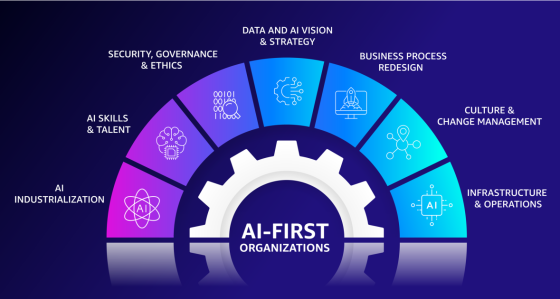As artificial intelligence begins to join the classroom, faculty members are trying to balance technological assistance with human interaction.
Practical implementation considerations to close the AI value gap
The AWS Customer Success Center of Excellence (CS COE) helps customers get tangible value from their AWS investments. We’ve seen a pattern: customers who build AI strategies that address people, process, and technology together succeed more often. In this post, we share practical considerations that can help close the AI value gap.
ChatGPT’s voice mode is no longer a separate interface
ChatGPT now lets you use voice and text in the same screen, making conversations feel more natural as responses and visuals appear in real time.
Warner Music signs deal with AI music startup Suno, settles lawsuit
WMG says artists and songwriters will have full control over whether and how their names, images, likenesses, voices, and compositions are used in new AI-generated music.
Utilizing Artificial Intelligence for the Resume Screening Process
If you have worked in a business where you’ve had to search through hundreds, or even thousands, of resumes to choose the employees you want to meet, Zip Recruiter may be able to help.
Dozens of state attorneys general urge US Congress not to block AI laws
Republican and Democratic attorneys general from 35 states and the District of Columbia urged congressional leaders on Tuesday not to block state laws governing artificial intelligence, warning of “disastrous consequences” if the technology is left unregulated.
OpenAI and Perplexity are launching AI shopping assistants, but competing startups aren’t sweating it
Startup founders building AI shopping tools think general-purpose models are too broad to deliver truly personalized shopping experiences.
Nvidia Stock Drops on Rumored Google–Meta Chip Deal. Should Investors Be Worried?
Are some of Nvidia’s biggest customers on the verge of a revolt that will upend the AI industry?
Google is a near-$4tn monument to monopoly power
As threat from ChatGPT recedes, users are searching more with the market leader and monetisation seems to be intact
Why Google's Challenge To Nvidia Is 'Intriguing' For Amazon's AI Chip Push
Amazon stock is trying to bounce-back from a recent sell-off as its annual cloud conference approaches. Its AI chips will be in focus.








